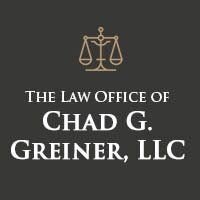Best Conveyancing Lawyers in Georgia
Share your needs with us, get contacted by law firms.
Free. Takes 2 min.
Free Guide to Hiring a Real Estate Lawyer
Or refine your search by selecting a city:
List of the best lawyers in Georgia, United States
About Conveyancing Law in Georgia, United States
Conveyancing in Georgia refers to the legal process of transferring real property ownership from one party to another. This transfer typically occurs when purchasing, selling, or inheriting real estate. Conveyancing in Georgia involves both the documentation and financial aspects of property transfer. Georgia’s system emphasizes title examination, use of deeds, and proper recording to ensure clear and lawful property transfers. Unlike some states, Georgia is an attorney state, which means lawyers play a required role in closing real estate transactions.
Why You May Need a Lawyer
Several circumstances make legal assistance important during a property transfer in Georgia. Property law is complex, and mistakes during conveyancing can result in significant financial loss or future disputes. Common reasons you may need a lawyer include:
- Ensuring correct drafting and review of sales contracts and deeds
- Clearing or discovering existing liens, errors, or title issues on the property
- Assisting with closings, as Georgia requires a licensed attorney to conduct real estate closings
- Negotiating terms between buyers and sellers
- Handling property inherited through probate or estate matters
- Resolving boundary or easement disputes
- Helping with complex transactions such as commercial property sales or purchases involving multiple parties
- Securing title insurance and ensuring compliance with lender requirements
Local Laws Overview
Georgia conveyancing law includes several key features that affect how property is transferred:
- Attorney Closings: Georgia law requires a licensed attorney to conduct real estate closings, unlike escrow-only states.
- Title Examination: Attorneys typically conduct a title search to ensure the property has a clear, marketable title.
- Deeds: Warranty deeds and quitclaim deeds are most commonly used. The deed must be properly executed and delivered to transfer ownership.
- Recording Requirements: All deeds must be recorded in the county where the property is located to protect the new owner’s interest.
- Lien Laws: Georgia has strict rules regarding payment of outstanding mortgages, property taxes, and liens before or at closing.
- Homestead Exemption: Georgia offers homestead tax exemptions which may affect property owners’ taxes after conveyance.
- Disclosure Laws: Sellers must disclose known material defects affecting a property’s value or safety.
- Foreclosures: Georgia is primarily a non-judicial foreclosure state, allowing lenders to foreclose outside of court under specific procedures.
Frequently Asked Questions
What does a real estate lawyer do during conveyancing in Georgia?
A Georgia real estate lawyer reviews contracts, conducts title searches, clears liens or title defects, prepares settlement statements, manages closing, and ensures legal compliance with state laws.
Do I need a lawyer to sell or buy property in Georgia?
Yes, Georgia law requires a licensed attorney to oversee and conduct the closing of any real estate transaction.
How long does the conveyancing process usually take in Georgia?
Most standard residential transactions close within 30 to 60 days, although timeframes can vary depending on title issues, loan approval, or contract contingencies.
What are the main documents used in Georgia real estate transfers?
Common documents include the purchase and sale agreement, deed (usually warranty or quitclaim), closing statement, title insurance, and disclosure forms.
What happens if there is a lien or unpaid taxes on the property?
All outstanding liens, taxes, or mortgages must be addressed and cleared before or at closing. The attorney will verify and resolve such issues as part of the process.
Can I use a title company instead of an attorney for closing?
No, unlike some states, Georgia requires a licensed attorney to be present and directly involved throughout the real estate closing process.
Are verbal agreements for property sales valid in Georgia?
No, real estate transactions in Georgia must be in writing to be enforceable and legally valid.
How do I know if the title to the property is clear?
A title search conducted by a qualified Georgia attorney will uncover any issues such as liens, mortgages, judgments, or claims against the property.
What is a homestead exemption and who qualifies?
A homestead exemption is a tax benefit for homeowners who occupy the property as their primary residence. Eligibility, amount, and application process vary by county.
What is earnest money and is it required?
Earnest money is a deposit showing the buyer’s good faith to purchase. While not legally required, it is customarily part of offers in Georgia real estate transactions.
Additional Resources
If you need further information or assistance with conveyancing in Georgia, consider these resources:
- State Bar of Georgia Real Property Law Section
- Georgia Association of Realtors
- Georgia Superior Court Clerks Cooperative Authority (for deed and title records)
- Your County’s Clerk of Superior Court (for recording requirements and forms)
- Georgia Department of Banking and Finance (for mortgage and lending regulations)
- Local legal aid societies for income-based assistance
Next Steps
If you are planning to buy, sell, or otherwise transfer real estate in Georgia, consider these actions:
- Consult with a licensed Georgia real estate attorney as soon as possible, especially before signing any contracts
- Gather all relevant documents, including property deeds, loan information, and disclosure statements
- Research and choose a reputable attorney with experience in Georgia conveyancing law
- If you are unsure where to start, contact the State Bar of Georgia or your local bar association for attorney referrals
- Prepare questions and disclosures in advance to make your legal consultation more effective
- Stay proactive throughout the process to ensure each step is completed according to Georgia’s laws and requirements
Consulting a qualified professional is the safest way to protect your rights, finances, and future property interests in any conveyancing matter.
Lawzana helps you find the best lawyers and law firms in Georgia through a curated and pre-screened list of qualified legal professionals. Our platform offers rankings and detailed profiles of attorneys and law firms, allowing you to compare based on practice areas, including Conveyancing, experience, and client feedback.
Each profile includes a description of the firm's areas of practice, client reviews, team members and partners, year of establishment, spoken languages, office locations, contact information, social media presence, and any published articles or resources. Most firms on our platform speak English and are experienced in both local and international legal matters.
Get a quote from top-rated law firms in Georgia, United States — quickly, securely, and without unnecessary hassle.
Disclaimer:
The information provided on this page is for general informational purposes only and does not constitute legal advice. While we strive to ensure the accuracy and relevance of the content, legal information may change over time, and interpretations of the law can vary. You should always consult with a qualified legal professional for advice specific to your situation.
We disclaim all liability for actions taken or not taken based on the content of this page. If you believe any information is incorrect or outdated, please contact us, and we will review and update it where appropriate.
Browse conveyancing law firms by city in Georgia
Refine your search by selecting a city.











